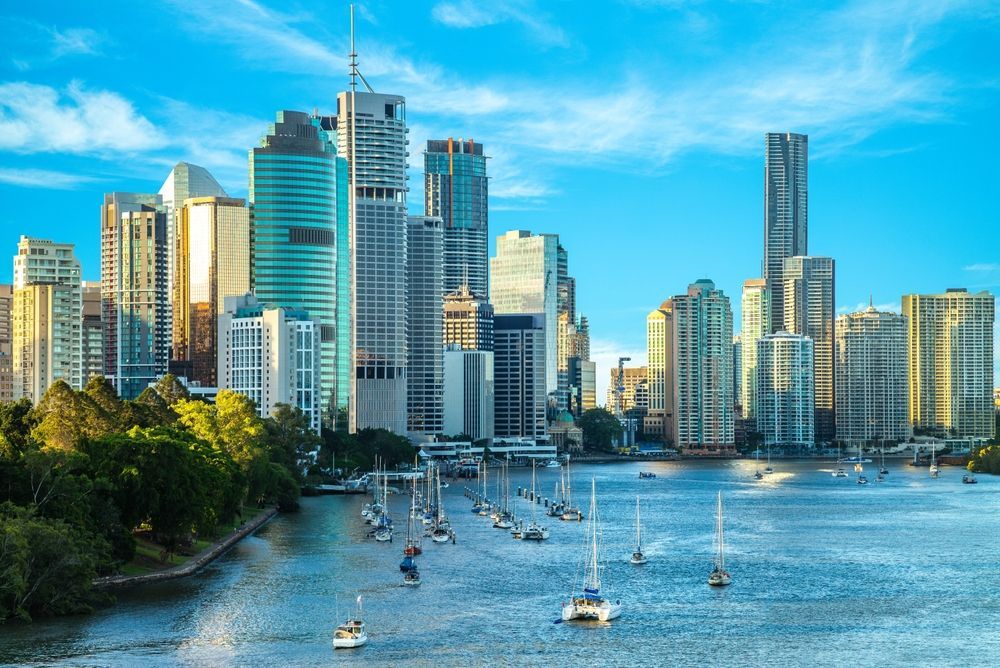Guide to Medical Professional Registration in New Zealand (Physicians)
All doctors practising in New Zealand must register with the single medical regulatory authority, the Medical Council of New Zealand. This article guides you through the pathways and processes to registration as a specialist or junior doctor.
The South Pacific island nation of New Zealand is a popular destination for international medical graduates, but before applying for physician jobs, you should verify your eligibility to obtain the correct professional registration and practice licence for the position you seek.
New Zealand has just one medical regulatory authority which performs multiple functions: it manages standards of medical practice, conducts examinations, maintains a register of all practising physicians in New Zealand and issues licences to practise, the Annual Practising Certificates (APC). This is the Medical Council of New Zealand (MCNZ), Te Kaunihera Rata O Atearoa to give it its Maori name, and it is located in Wellington the capital city.
The Three Scopes of Physician Registration with the Medical Council of New Zealand
There are three pathways (called scopes in New Zealand) to registration as a physician with the Medical Council of New Zealand.
General Scope
Medical practitioners registered within the general scope of practice (or the provisional general scope of practice, which precedes it) are typically resident doctors, resident medical officers (RMO), house officers and registrars and doctors undergoing vocational (specialist) training.
Vocational Scope
Vocational registration is a form of permanent, specialist registration which allows the doctor to work independently as a senior medical officer or general practitioner (family physician) in New Zealand. A senior medical officer is the job title used for the equivalent positions of consultant or specialist in other countries.
Special Purpose Scope
Special purpose registration is a temporary form of registration, for defined specific purposes. This scope should be used only when medical practice in New Zealand is intended to be short term (locums of less than 12 months duration can use this pathway) or when the doctor participates in research, further training or assists with a disaster.
Most physicians seeking work in New Zealand will use either general or vocational pathways.
The General Scope of Registration
This is the pathway you should select if you want to apply for house officer or registrar jobs in New Zealand and there are 6 pathways to achieve it, 2 for Australian and New Zealand medical graduates and 4 for international medical graduates.
Pathways for Australian and New Zealand Medical Graduates
1: New Zealand and Australian medical graduates (pre-internship)
This pathway is for New Zealand and Australian medical graduates wanting to register within the Provisional General scope of practice to complete their internship. To apply, you need a confirmed job offer from an accredited training provider to work in clinical attachments for postgraduate year 1 (PGY1).
2: New Zealand and Australian medical graduates (internship completed in Australia)
This pathway is for New Zealand and Australian medical graduates who have successfully completed their internship in Australia and want to register within the General scope of practice. You need to have:
- a primary medical degree from a New Zealand or Australian university medical school,
- completed your internship in Australia, and
- meet the Council's "fitness for registration" requirements
Pathways for International Medical Graduates (IMGs)
3: NZREX Clinical graduates
You can apply for registration through this pathway if you:
- have a primary medical degree from a school listed in the World Directory of Medical Schools
- have passed Medical Council of New Zealand's registration examination (NZREX Clinical) in the last five years
- meet the Council's "fitness for registration" requirements
- have a confirmed job offer with supervised practice.
4: Australian general registrants (full AHPRA general registration)
You can apply for this pathway if you have:
- a primary medical degree from a university medical school listed in the World Directory of Medical Schools,
- a pass mark in the Australian Medical Council (AMC) multi-choice questionnaire examination,
- a pass in the AMC Clinical examination, or successfully completion of a formal AMC-approved workplace-based assessment,
- satisfactorily completed 12 months of supervised practice in Australia resulting in full general registration with the Australian Health Practitioner Regulation Agency (AHPRA)
- meet Council's "fitness for registration" requirements including satisfying Council's English language policy.
- have evidence of a job offer that includes supervision.
5: UK and Irish medical graduates
You can apply for registration through this pathway if you:
- hold a primary medical degree from an approved medical school in the United Kingdom or Ireland; and
- have completed your internship in either the United Kingdom or Ireland; and
- meet the Council's "fitness for registration" requirements
- have a job offer that includes supervision.
If you have completed your internship outside the United Kingdom or Ireland, your overseas internship will need to be assessed using the council's recognition of internships policy, before you submit an application for registration.
6:
Comparable health system experience - 33 months experience, 23 countries
You can apply for registration through this pathway if you:
- a primary medical degree from a university medical school listed in the World Directory of Medical Schools
- have practised clinically for at least 33 months, for at least 20 hours per week, during the 48 months prior to application, in one or more comparable health systems; and
- have practised in the same or a similar area of medicine, and at a similar level of responsibility to the proposed New Zealand position for those 33 months; and
either
hold current full or general registration with the regulatory authority of at least one of the comparable health systems worked in during the 48 months, or - are satisfactorily participating in a training programme recognised by the American Boards or the Canadian specialist colleges or be registered by the Irish Medical Council as a specialist trainee; and
- meet the “fitness for registration” requirements.
Alternative pre-requisites for general practitioners
If you do not meet the above prerequisites, you can apply for registration through this pathway to work as a general practitioner if you:
- have completed a formal postgraduate training programme and been awarded a postgraduate qualification in general practice in a comparable health system within the preceding three years immediately prior to application; and
- have practised in a comparable health system, for at least 33 months (for at least 30 hours per week) of the 48 months prior to application, including at least 18 months (full-time equivalent) of practice in general practice in an area in which the range of presentations and patient base is not restricted; and
- hold current full or general registration with the regulatory authority of at least one of the comparable health systems worked in during the 48 months; and
- meet the “fitness for registration” requirements.
The 23 Countries with Comparable Healthcare Systems
The Medical Council of New Zealand assesses the healthcare systems of countries with respect to public health, practice environment and registration indicators. It has deemed the 23 countries listed below as having comparable healthcare system standards.
- Australia
- Austria
- Belgium
- Canada
- Czech Republic
- Denmark
- Finland
- France
- Germany
- Greece
- Iceland
- Israel
- Italy
- Norway
- Portugal
- Republic of Ireland
- Singapore
- Spain
- Sweden
- Switzerland
- The Netherlands
- United Kingdom
- United States of America
Vocational Scope - Specialist Registration
This pathway is for doctors who have completed specialist training and wish to practice in a primary speciality or subspecialist field.
Pathways for Australian and New Zealand Qualified Specialists
VOC 1
This pathway to vocational registration is for doctors who hold an approved New Zealand / Australasian postgraduate qualification and already hold registration with the Medical Council of New Zealand in the General scope of practice.
VOC 2
This pathway is for specialists holding the approved New Zealand/Australasian postgraduate qualification, but without general registration with the Medical Council of New Zealand.
Pathways for International Qualified Specialists
VOC3 Provisional Vocational Registration
If you trained and qualified as a specialist outside of New Zealand and Australia and wish to work in New Zealand as a specialist you can apply for this provisional category of vocational registration and your overseas training and qualifications will be assessed by the Medical Council of New Zealand the appropriate Australian and New Zealand Specialist Medical College.
You will receive one of three outcomes:
- equivalent
- as satisfactory as
- unsatisfactory - this means that your application cannot proceed further.
Before you can obtain vocational registration in New Zealand you must undertake a period of practice in the provisional vocational scope of practice for a period of 6-18 months and you will be allocated to one of two types of provisional vocational registration:
- provisional vocational (supervision)
- provisional vocational (assessment)
Provisional vocational (supervision)
You will be granted provisional vocational registration, and require a period of satisfactory supervised practice by a physician practising in the same speciality before obtaining vocational registration, if you:
- have qualifications, training and experience equivalent to that of a New Zealand vocationally-trained doctor registered in the same vocational scope of practice
- will be able to achieve full registration in a vocational scope of practice within 18 months of obtaining provisional registration.
To be granted vocational registration, you will have to:
- complete 6-12 months of satisfactory supervised practice
- enrol in the relevant College or association continuing professional development programme.
Provisional vocational (assessment)
You will be granted provisional vocational registration, and require a period of satisfactory supervised practice and a successful assessment by a physician practising in the same speciality before obtaining vocational registration, if you:
- have qualifications, training and experience as satisfactory as that of a New Zealand vocationally-trained doctor registered in the same vocational scope of practice
- will be able to achieve full registration in a vocational scope of practice within 18 months of obtaining provisional registration.
You will have to:
- complete 12-18 months of supervised practice to a satisfactory level
- enrol in the relevant College or association continuing professional development programme
- complete a form of assessment.
Forms of assessment
If you are granted registration down the 'assessment' pathway, you may have to complete one or more of the following:
- a vocational practice assessment (VPA)
- the College examination
- a period of practice at a tertiary centre
- a logbook which the VEAB will review at the end of the assessment period
- continuing medical education courses recommended by the VEAB
- other forms of assessment, with evidence showing how an assessment is relevant to qualifications, training and experience.
You will be advised at the time of being granted provisional vocational registration what the assessment requirements are, and if you are required to undergo a VPA.
Vocational practice assessment
The vocational practice assessment (VPA) will take generally place once you have completed 12-18 months of satisfactory supervised practice. It is a one-day workplace assessment, during which you will be visited by two assessors (specialists in the same area of medicine).
The purpose of the VPA is to assess your competence by confirming that you are:
- practising at the level of a doctor holding the New Zealand/Australasian postgraduate qualification
- practising at the level of a doctor registered in the same vocational scope of practice
- competent to practise independently and unsupervised in the relevant vocational scope of practice.
The assessors will interview you and your colleagues, review your records and observe your practice. They will prepare a report for Council, which will be use to assess whether you have at the required standard to obtain vocational registration.
Vocational registration
Once you have completed all of the requirements for vocational registration, you will be able to apply for a change of your registration status from provisional vocational to vocational. You will need to provide evidence that you have completed all requirements to a satisfactory standard.
Special purpose scope
Special purpose registration is a temporary form of registration, for specific purposes. You should apply for this scope when you want to work in New Zealand for a specific purpose such as research, further training or to assist with a disaster.
Locum tenens
The special purpose locum tenens scope of practice is for doctors with an overseas specialist qualification on the approved list of the Medical Council of New Zealand who have a job offer to work in New Zealand for 12 months or less.
Teleradiology
The special purpose teleradiology scope of practice enables doctors without the recognised New Zealand or Australasian qualification to provide teleradiology services for patients in New Zealand.
Visiting expert
The special purpose visiting expert scope of practice enables doctors to come to New Zealand to proctor, demonstrate, assist or teach a new or existing procedure to New Zealand practitioners for a maximum of one week.
Postgraduate training
Special purpose postgraduate training registration is available for doctors looking to come to New Zealand on a temporary basis, to gain experience and skills to take back to their home or sponsor country.
Research
Special purpose research scope of practice is for doctors who come to New Zealand temporarily to undertake research. This special purpose scope is available for a maximum of two years and practise is restricted to research approved by a formally-constituted ethics committee in New Zealand.
Other special purposes
There are two special purpose scopes of practice which enable the MCNZ to react to emergencies and unpredictable situations or disasters and pandemics. The specific requirements and length of registration depend on the event, and are determined by the Council when required.
Fitness to Practice Regulations for Doctors
In order to register you must satisfy the criteria listed below:
- you can communicate effectively and comprehend English sufficiently to protect public health and safety (see English language requirements below)
- you do not suffer from a physical or mental disorder which may affect your ability to practice medicine
- if you have a conviction for an offence punishable by imprisonment for a term of three months or longer; the offence does not reflect adversely on your fitness to practise
- if you are under investigation or the subject of professional disciplinary proceedings in New Zealand (or in another country), that investigation or matter does not reflect adversely on your fitness to practise
- if you are subject to any of the following orders, the order does not reflect adversely on your fitness to practise. That is:
- an order of a professional disciplinary tribunal in New Zealand or overseas
- an order of an accredited educational institution
- an order of an authority or of a similar body in another country
6. There is no reason to believe that you may endanger the health or safety of members of the public.
The registration application forms include a range of 'fitness for registration' questions. Your responses, as well as the information provided from your referees and from other regulatory authorities, help the MCNZ to decide if you are fit to be registered and practise in New Zealand.
Doctors who are already registered to practise in New Zealand are asked similar fitness questions as part of the annual process to renew their practising certificate.
English Language Requirements
Section 16 (b) of the Health Practitioners Competence Assurance Act 2003 requires the Medical Council of New Zealand (Council) to be satisfied that any doctor seeking registration in New Zealand is able to communicate in and comprehend English sufficiently to protect the health and safety of the public.
A doctor making an application, either for registration or for sitting the New Zealand Registration Examination (NZREX Clinical), must first satisfy Council that their ability to communicate in and comprehend English is sufficient to protect the health and safety of the public.
To be accepted to sit NZREX Clinical or to be registered with the Council, applicants must demonstrate they meet one of the eight following English language requirements.
1. Have a primary medical qualification from a New Zealand medical school.
2. (i) Speak English as a first language; and
(ii) Have an acceptable primary medical qualification from Australia, the United Kingdom, the Republic of Ireland, the United States, or a Canadian or South African medical school where English is the sole language of instruction of that medical school.
3. (i) Satisfy the Council of having completed at least 24 months full time equivalent of a health-related postgraduate qualification (diploma, masters or PhD) at an accredited New Zealand university within the 5 years immediately prior to application; and
(ii) Provide references from two professors from an accredited New Zealand university who are registered as doctors in New Zealand and who speak English as a first language. The referees must be able to attest to the applicant’s ability to read, write, speak and understand spoken English.
4. (i) Satisfy Council of continuous work as a registered medical practitioner in an institution where English was the first and prime language for a period of at least 2 years within the 5 years immediately prior to application; and
(ii) Provide the names and contact details of at least two referees who are senior medical practitioners who speak English as a first language, and who can attest to the applicant’s ability to comprehend and communicate effectively in English in a clinical setting with both patients and professional colleagues. Referees will be contacted directly by the Council or a body Council authorised to do this (employer or recruitment agency).
5. (i) Have been granted registration with the Medical Council of New Zealand on or after 18 September 2004 which was cancelled for administrative reasons (and not as a result of an order of the Health Practitioners Disciplinary Tribunal or a direction by the Council under section 146 or 147 of the HPCAA); and
(ii) Provide the names and contact details of at least two referees who are senior medical practitioners registered in New Zealand, and who can attest to the applicant’s ability to comprehend and communicate effectively in English in a clinical setting with both patients and professional colleagues. Referees will be contacted directly by the Council or a body Council authorised to do this (employer or recruitment agency).
6. Pass the Academic Module of the International English Language Testing System (IELTS) by achieving a minimum of the following within one result: Minimum required scores:
- Speaking 7.5
- Listening 7.5
- Writing 7.0
- Reading 7.0
Validity of IELTS results IELTS results are valid within:
- 2 years of an application for registration.
- 2 years of NZREX Clinical examination date (new candidate).
- Repeat candidates for NZREX Clinical will not be required to re-sit IELTS for up to 5 years of the examination date if they have been, since the last NZREX Clinical sat, residing continuously in New Zealand, Australia, the United Kingdom, the Republic of Ireland, the United States, Canada (English speaking region, not Quebec) or South Africa. Acceptable evidence includes a letter of reference from an employer or landlord with a passport displaying visa or residency.
7. Pass the Medical Module of the Occupational English Test (OET) by achieving a minimum score of 350 in each of the four components (reading, writing, listening and speaking) within one result.
Validity of OET results OET results are valid within:
- 2 years of an application for registration.
- 2 years of NZREX Clinical examination date (new candidate).
- Repeat candidates for NZREX Clinical will not be required to re-sit OET for up to 5 years of the examination date if they have been, since the last NZREX Clinical sat, residing continuously in New Zealand, Australia, the United Kingdom, the Republic of Ireland, the United States, Canada (English speaking region, not Quebec) or South Africa. Acceptable evidence includes a letter of reference from an employer or landlord with a passport displaying visa or residency.
8. For applying for registration only, pass the NZREX Clinical examination, within the 5 years immediately prior to application
Further Information
Doctors seeking jobs in New Zealand are invited to register a CV and contact us to discuss opportunities. Advertised jobs can be viewed on the website and applications made by uploading a recent CV which satisfies the essential credentials set out in the job advert.
28 October 2022
Share this post on Social Media
Leave a Comment
SEARCH JOBS
Ready for a change? Whether you’re looking for higher compensation, greater autonomy, a better work-life balance, or just a change in scenery, we have job opportunities in wonderful locations across the world. Start your medical or dental job search today and embark on your next career move.
SIGN UP FOR JOB ALERTS
We believe everyone deserves to find their dream job. Be the first to hear about new practice opportunities in exciting locations across the world Simply sign up for job alerts in your chosen field, and we will email you when a new job in your specialty becomes available.


















